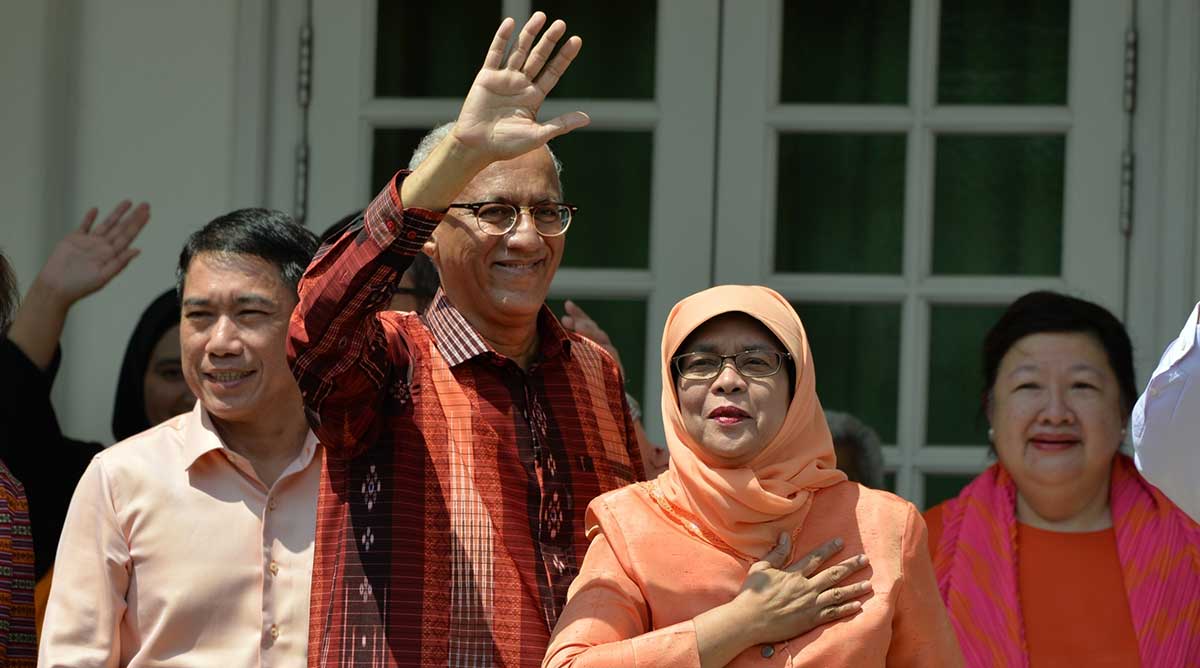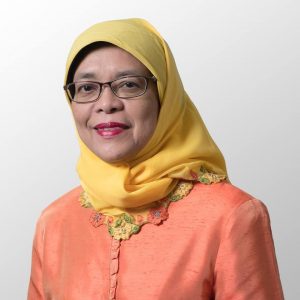NRI
Halimah Yacob to be Singapore’s First Woman President

Halimah Yacob, who was born to an Indian Muslim father and a Malay mother, becomes Singapore's first woman President.
Tiding over the controversies regarding her Indian roots and the way she was elected to the country’s highest post, Halimah Yacob officially became the President of Singapore on Sept. 13. She reached the post even though no election was conducted this time, as the applications of her competitors — Farid Khan and Salleh Marican — were rejected for failing to meet the criteria set for presidential candidates.
“I declare Halimah Yacob as the candidate elected as the president of the Republic of Singapore,” returning officer Ng Wai Choong announced.
Yacob, a former speaker of Parliament, has become the first woman to hold the position in Singapore. She will also be the first President to live in a Housing Board flat during her term, and is the first Malay head of state in five decades, after Yusof Ishak, whose image is used on the country’s bank notes.
Yacob was certified by the Presidential Elections Commission as the only eligible candidate on Sept. 11, which made her assume the post without an election.
Inspiring Speech After Formal Declaration
Several supporters of Yacob gathered at the People Association headquarters at King’s George Avenue on Wednesday morning. Dressed in orange, they blew whistles and chanted her name as she arrived.
“I am a president for everyone, regardless of race, language, religion or creed. I represent everyone. My duty remains only to Singapore and Singaporeans. My duty remains only to you. Although there is no election, my commitment to serve you remains the same,” she said, the Strait Times reported.
“Although this is a reserved election, I am not a reserved President,” she added. “Every woman can aspire to the highest office of the land, if you have the courage, the determination and the will to work hard.”
Yacob’s rise to the post is significant in the country, as she belongs to the Malay ethnicity, which forms just 13 per cent of the country’s population. The presidency was reserved for Malay candidates this time to strengthen the sense of inclusivity in the multicultural country.
Not all Singaporeans Happy
The “Selected Not Elected” factor will be one of the biggest criticisms that Yacob will face in the coming days. Just a few months before the presidential election, the Singapore government mandated that this year’s candidature is reserved only for people from Malay background. The Parliament also substantially raised the criteria for financial management.
Salleh Marican and Farid Khan could not qualify for the election, as their companies didn’t have at least S$500 million in shareholders’ equity, a rule that was recently tightened by the government. In the case of Yacob, this criteria was not applicable as she was the speaker in Singapore Parliament, and those who have served as public officers can qualify for the election.
“Singaporeans have always known that our politicians… consider themselves superior beings,” writer Sudhir Thomas Vadaketh said, BBC had reported. “Now, with this reserved presidency, we have irrefutable proof about just how stupid they think we are.”
Who is Halimah Yacob?

Yacob was born on August 23, 1954, in her family home at Queen Street. She was the youngest of five children. Her father, who was a watchman of Indian descent, died when she was eight, and her mother became the sole bread winner of the family.
She went on to get a degree in law, and entered politics at the behest of former Singapore Prime Minister Goh Chok Tong. Yacob became a Minister of State in 2011, and the first woman to be elected the Speaker of the House in 2013.
“From the age of 10, my hours outside of school were spent being my mother’s assistant: cleaning, washing, clearing tables and serving customers, and I am a better person for it,” Yacob writes on her website. “I have experienced poverty first-hand and know how debilitating it can be as you struggle to survive, to put food on the table and also grapple with the uncertainty of the future on a daily basis. It limits your choices but also tempers your determination to succeed.” – IANS

You must be logged in to post a comment Login